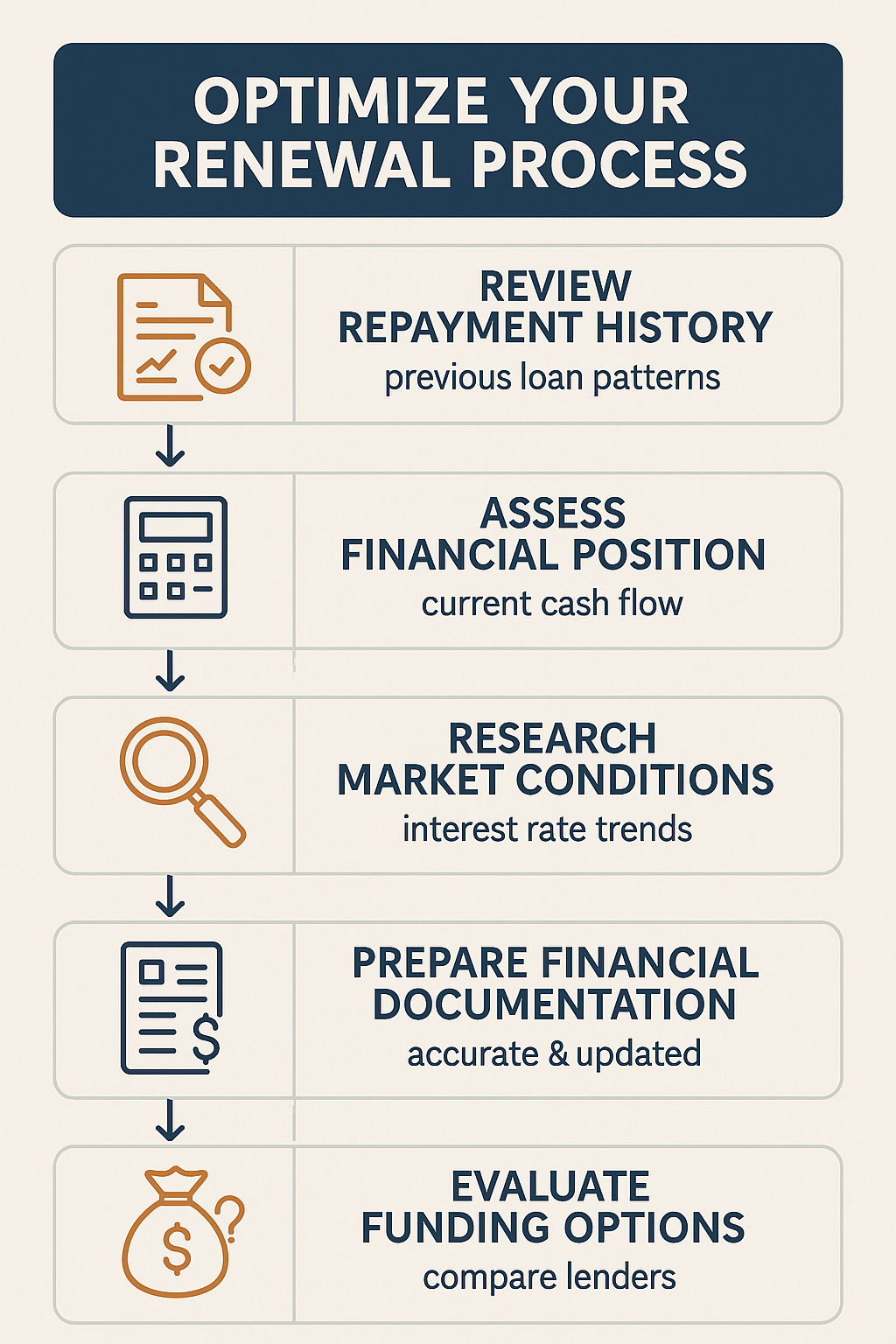Timing your business funding renewal correctly can mean the difference between maintaining smooth operations and facing cash flow disruptions. Smart business owners understand that renewal decisions shouldn't be left to the last minute, but rather planned strategically to optimize their financial position.
Understanding the Strategic Importance of Renewal Timing
Understanding the strategic importance of renewal timing helps business owners maintain financial stability while positioning themselves for growth. The current lending landscape shows increasing opportunities for small businesses, even amid market changes. This environment may create favorable conditions for those looking to renew or refinance their existing funding arrangements.
Renewal timing affects more than just cash flow continuity. It influences your ability to negotiate better terms, secure better terms, and maintain the financial flexibility needed for business operations. When you approach renewal strategically, you might access improved conditions that weren't available during your initial funding agreement.
Key Indicators It's Time to Consider Renewal
Key indicators it's time to consider renewal often appear months before your current funding agreement expires. Recognizing these signals early gives you the advantage of planning rather than reacting to urgent financial needs.
- Your current funding agreement has 90-120 days remaining before maturity
- Monthly cash flow has improved significantly since your original funding
- Your business credit profile has strengthened through consistent repayment history
- Industry trends show favorable lending conditions for your business sector
- You need additional working capital to support expanding operations or seasonal demands
Steps to Optimize Your Renewal Process

Steps to optimize your renewal process should begin well before your current funding expires. A systematic approach typically yields better results than rushed decisions made under time pressure.
- Review your repayment history and calculate the total cost of your current funding to establish a baseline for comparison
- Assess your current financial position including cash flow patterns, revenue trends, and credit standing improvements
- Research current market conditions and lending trends that might affect qualification requirements or available terms
- Prepare updated financial documentation including recent bank statements, tax returns, and business performance metrics
- Evaluate multiple funding options to ensure you're securing the most suitable terms for your business needs
Making Smart Renewal Decisions
Making smart renewal decisions requires balancing immediate cash flow needs with long-term financial strategy. The goal isn't just maintaining funding, but improving your overall financial position. Consider how renewal timing aligns with your business cycles, growth plans, and market opportunities. Fast renewal options may help maintain consistent cash flow, but evaluating all available terms ensures you're making the most advantageous choice for your business.
Strategic funding renewal timing can significantly impact your business's financial health and growth potential. By monitoring market conditions, assessing your repayment progress, and planning ahead, you position your business to secure better terms while maintaining operational continuity. Remember that the best renewal decisions combine careful timing with thorough preparation.

.png)






